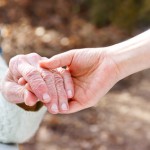As winter's icy grip tightens, it's important for elderly individuals to take extra precautions to stay warm and safe during extremely cold weather. With age, our bodies become more vulnerable to the cold, making it essential to be well-prepared. Here are some tips on how to deal with very cold weather as an elderly person:
 1. Layer up:
1. Layer up:Layering clothing is an effective way to trap heat and keep warm. Start with thermal or moisture-wicking base layers to keep sweat away from your skin, add an insulating layer for warmth, and finish with a windproof and waterproof outer layer to protect against the elements.
Hands, feet, and the head are particularly susceptible to the cold. Wear warm gloves or mittens, thick socks, and a snug hat to prevent heat loss from these areas.
Ask questions regarding retirement homes to our experts
Moisture can make you feel even colder. Make sure your outer layer is water-resistant to protect against snow and sleet. Carry an umbrella or wear a waterproof coat if you need to be outside in wet conditions.
Keep your indoor environment warm but not too hot, as excessively high temperatures can lead to health issues. Set your thermostat to a comfortable temperature, and use space heaters with caution to prevent accidents or fires.
Eating warm and nourishing meals can help your body generate heat. Include hot soups, teas, and other warm beverages in your diet. Proper nutrition also supports your immune system, which can help you ward off winter illnesses.
Staying hydrated is just as important in the winter as it is in the summer. Drink warm beverages, like herbal teas or warm water with lemon, to keep hydrated.
Regular physical activity can help maintain body heat, but exercise indoors or in safe conditions to avoid the risks of slipping on icy sidewalks. Gentle indoor exercises or chair exercises can help keep you active.
Know the signs of hypothermia, such as shivering, confusion, slurred speech, and slow breathing. If you or someone you know experiences these symptoms, seek medical attention immediately.
Dealing with very cold weather as an elderly person requires vigilance and preparation. By taking these steps, you can stay warm, safe, and healthy during the coldest months of the year. Remember, it's always better to be over-prepared than to risk the dangers of extreme cold.
Are you looking for a senior living in Ontario?
Don't hesitate to contact us at 343 309 5289 . We can help you choose the right establishment for you and assist you in your search.

Find a suitable senior residence